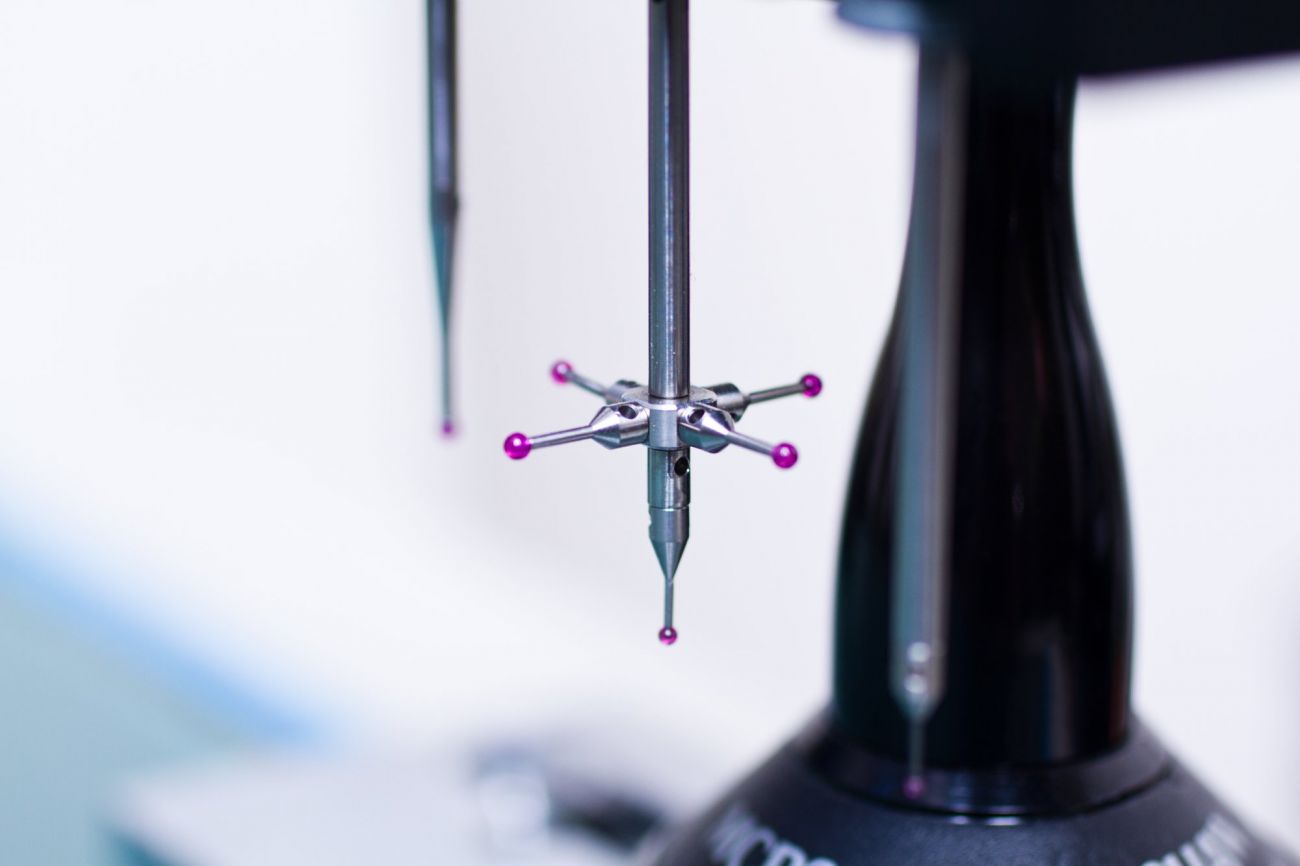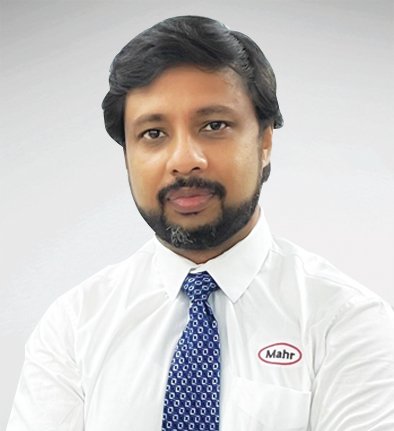To Measure is to Know

As the market potential for industrial metrology is growing strong, industry experts highlight advanced trends that they believe will be prevalent in the near future. They also share their two cents on integrating Industry 4.0 technologies and optical metrology in the product offerings.
The industrial metrology market is projected to grow from US$ 14.9 billion in 2024 to US$ 20 billion by 2029, with an expected CAGR of 6.7 percent during this period. This growth is largely driven by the increasing demand for industrial metrology across sectors such as Automotive, Defence, Aerospace, Electronics, and Manufacturing.
In today's rapidly evolving industries, product quality is paramount. High-precision measurement tools are vital for maintaining accuracy and consistency, helping manufacturers meet stringent quality standards and customer demands. These solutions are particularly crucial in the above-mentioned fields, where components must conform to tight tolerances. From aligning aircraft parts to controlling dimensions in car production or ensuring microelectronic precision, these measurement technologies are essential for product integrity and reliability.
|
APM Technologies 3D Pvt Ltd |
 |
Anil Gupta Trends that herald more intelligent metrology solutions The industrial metrology market is witnessing significant advancements, with two key trends expected to become more prevalent: |
Adoption of Automated Optical Inspection (AOI) Systems: AOI systems are becoming increasingly popular in industrial metrology due to their ability to provide fast, accurate, and non-contact inspection of parts and assemblies. These systems leverage advanced imaging technologies and machine learning algorithms to detect defects and ensure quality control in real time. The integration of AOI systems enhances productivity and reduces the likelihood of human error, making them a crucial component in modern manufacturing environments.
Adoption of Portable Metrology Solutions: Portable metrology solutions are on the rise, allowing for on-site measurements and inspections. These solutions offer flexibility and reduce the need for transporting parts to centralized inspection facilities, thereby saving time and costs while maintaining high accuracy.
These trends highlight the move towards more intelligent and flexible metrology solutions in the industry.
Integration of Industry 4.0 technologies and optical metrology
The integration of Industry 4.0 technologies and optical metrology in product offerings is transforming the landscape of manufacturing and quality control. This integration is perceived as Enhanced real-time quality control, Smart manufacturing and zero-defect production, Improved data-driven decision-making, and Addressing industry challenges.
Based on recent analyses and market trends, several new industry sectors are expected to experience significant demand growth in the coming years. The most promising sectors include Automotive, EV, Healthcare, Renewable Energy, and Education Technology (EdTech).
APM offers solutions in the field of Scanning and Deformation measurements. Our ATOS Scanning system and TRITOP Photogrammetry systems offer scanning solutions for a wide variety of components, while the cutting-edge ARAMIS, ARGUS, and PONTOS address different deformation needs.
In addition to Scanning, we offer services for Surface Modeling, Class A Surfacing, Solid Modeling, Scan-based inspection, and Quality Control to offer a completely reverse-engineered part and help customers with their product development process.
|
Carl Zeiss India (Bangalore) Pvt Ltd |
 |
Aveen Padmaprabha Automation for quality and efficiency The use of automation in metrology will enable faster and more accurate measurements, reducing the time and effort required for quality control. This will be particularly useful in high-volume manufacturing environments, where speed and efficiency are essential. Industry 4.0 will facilitate the integration of metrology data into the production process, allowing for real-time feedback and adjustments to improve quality and efficiency. |
This will enable manufacturers to optimize their production processes and improve product quality, leading to increased customer satisfaction and loyalty.
Enabling real-time control of production processes
The integration of Industry 4.0 technologies and optical metrology in product offerings will provide numerous benefits. Optical metrology can provide accurate and reliable measurement of 3D data that can be integrated with other data sources to optimize production processes and improve product quality. This integration will enable real-time control of production processes, ensuring consistent quality and reducing the likelihood of defects. The integration of Industry 4.0 technologies will also enable the automation of production processes and the use of predictive analytics to anticipate issues before they occur. This will help manufacturers to reduce downtime and improve overall efficiency, leading to increased profitability and competitiveness.
Meeting customers’ specific needs
Automotive, Electric and Hybrid vehicles, Aerospace, Electronics, and Medical manufacturing industries are currently key sectors for Carl Zeiss India. However, we are constantly developing new solutions based on customer feedback. This indicates that we are committed to staying ahead of industry trends and providing customers with the solutions they need to succeed. While it is difficult to predict which new industry sectors will see more demand in the coming years, it is clear that Carl Zeiss India will be ready to support these sectors with innovative solutions that meet their specific needs. By focusing on customer feedback and staying ahead of industry trends, we are well-positioned to continue growing and expanding our metrology portfolio in India and beyond.
|
Mahr Metrology India Pvt Ltd |
 |
Deepayan Das Shopfloor measurement one of the trends The domain of industrial metrology is changing fast. As manufacturing becomes smarter, metrology needs to evolve to maintain pace with the changed modern manufacturing. While several trends are visible in the field of metrology, two of the dominating trends are measurement on the shop floor and faster measurement. The former means the parts do not need to travel to the Standards Room but can be measured with the same (or better) accuracy on the shop floor. |
The latter means that more and more measuring stations will become automated.
We will see a lot of cobot-assisted measuring solutions emerging to ensure faster speed of measurement, reduced cycle time, and minimum operator intervention. Together these trends will go a long way in shaping the metrology of the future. Mahr has been working with our customers in developing products and technologies in both these areas. In the recently concluded Innovation Days organized in Mahr HQ in Gottingen, Germany, we showcased a host of products and solutions targeted towards these trends.
SMAHRT Metrology
Industry 4.0 has been at the forefront of Mahr’s product designs. In a connected manufacturing environment, we believe that measuring instruments have to be smarter. This has led to SMAHRT Metrology which means intelligent and networked measurement technology. The SMAHRT Metrology has two parts SMAHRT Products, which are automatic, fast, user-friendly, intelligent, and networked, and SMAHRT Solutions, which are individual, networked, and semi- and fully-automated customer solutions. From our simple Callipers to Integrated Measuring stations, we keep the SMAHRT concept in mind in all our products. Mahr, through its 160 years of history in designing and manufacturing world-class metrology solutions, realizes the importance of optical technology in today’s metrology solutions. Many interesting and innovative solutions like the Mahr 4D PLQ 4200 and the range of Mahr solutions in Optical 3D Surface Metrology bear testimony to this fact.
Sunrise sectors, including Aerospace, Defence, Medical, EV Manufacturing, and Renewable Energy, are to be
major drivers of demand for metrology solutions in the coming years.
|
Marposs India Pvt Ltd |
 |
Luca Matteucci Optimizing processes and arresting unforeseen breakdowns The IoT capabilities of Marposs measurement and inspection devices allow them to connect to factory networks and collect real-time data from different production stages. This connectivity enables seamless integration with other smart devices and systems in the manufacturing environment. |
Advanced data analysis techniques are used to examine the vast amounts of data collected by Marposs equipment. By identifying patterns, trends and anomalies in the manufacturing process, this study provides insightful information for process optimization.
Marposs devices track variables such as temperature and vibration to continuously monitor the health of production equipment. By examining these parameters, the system can predict when maintenance is required before a breakdown occurs. The system alerts maintenance staff when it detects potential equipment failure, allowing them to schedule maintenance during planned downtime rather than in response to unforeseen breakdowns.
MAINDO and C-THRU4.0
The advancement in sensor technology and its integration with the Internet of Things (IoT) includes IoT Connectivity, Predictive Maintenance and Enhanced Data Analytics.
MAINDO acts as an enabler for Industrial IoT by integrating these advanced sensor technologies and IoT connectivity, providing a comprehensive solution that enhances data-driven decision-making and operational efficiency, granting high-security standards MAINDO is a platform that integrates, shares, and leverages data produced by Marposs and third-party systems focused on quality assurance, manufacturing procedures, and environmental factors. This aligns with Industry 4.0 concepts by providing – Centralized Data Access, Root Cause Analysis, Web-based Accessibility, and Cyber Security.
The second trend is the need for database management systems for tool, process, and machine monitoring. With our C-THRU4.0, each individual machining step can be viewed in detail and comprehensively. The software also provides information on process quality.
To be at the forefront of the Automotive industry, Marposs focuses on these developments and keeps upgrading its range of technologies. The company will be able to handle new challenges and seize new opportunities in the evolving automotive landscape with new industries like E-Mobility, Biomedical, Aerospace, HVAC, Electronic, and Semiconductor. Also, thanks to our commitment to research and development, we look forward to strategic partnerships and customer-centric solutions.
|
PolyWorks India |
 |
Uday Dixit 3D metrology and portable scanning devices Adoption of 3D Metrology and portable scanning technologies – With 2D drawings slowly phasing out of practice, 3D metrology is expanding rapidly. This is mainly driven by the greater efficiency in terms of quick understanding of the inspection requirements |
This increases flexibility and reduces the need for transporting objects to metrology labs.
Integration of data management system – A highly secured data management system that can handle large volumes of measurement data and provide quick access to customized analysis is in great demand. Such systems can provide deeper insight improving decision making.
Optical metrology with Industry 4.0 technologies have advantages
The fusion of advanced optical metrology with Industry 4.0 technologies enhances quality control processes by improving accuracy, efficiency, and connectivity within manufacturing processes. Here’s how this integration is perceived and its potential impacts:
Real-time data collection – Since the Optical Inspection system can continuously collect measurement data, it can provide instant feedback enabling quick adjustments and corrections to maintain product quality.
Automated inspection – When integrated with an automated system such as robots, high-speed continuous inspection is possible which reduces human error with a high level of throughput.
Adaptive manufacturing – A large volume of inspection data is generated by an optical inspection system if directed to an efficient data management system. An informed decision can be made regarding process improvement and quality management.
In the coming years, several new industry sectors in India are poised to see rising demand due to technological advancements, policy support, and evolving consumer preferences. These sectors include Renewable Energy, Electric Vehicles (EVs), Information Technology and Digital Services, and Advanced Manufacturing and Industry 4.0.
 |
Poonam Pednekar Chief Copy Editor Magic Wand Media Inc poonam.pednekar@magicwandmedia.in |





 Facebook
Facebook.png) Twitter
Twitter Linkedin
Linkedin Subscribe
Subscribe